The militant union baron behind the tube strike that ground London to a halt has said that train drivers could walk out again – despite receiving a 3.4 per cent pay rise.
Eddie Dempsey, General Secretary of the Rail, Maritime and Transport workers’ union (RMT), told BBC‘s Politics London that his union is prepared to strike again if TFL doesn’t ‘make serious progress’ on ‘fatigue and shift work’.
Mr Dempsey, who took over as the general secretary from Mick Lynch this year, said: ‘We’re always prepared to negotiate, and we’re always prepared to strike.’
Pressed on when a potential further strike would take place, he added: ‘Londoners can rest assured we will go to the negotiating table, and we will make every effort to find a reasonable solution to this dispute.
‘And if we can’t, our members will have to come through their democratic structures and decide what steps we take next.’
As part of their list of demands, the RMT is calling for a 32-hour working week for staff on the London Underground.
The RMT is calling for a move towards a 32-hour working week for staff on the London Underground.
A meeting between the RMT and TfL is scheduled for Wednesday.
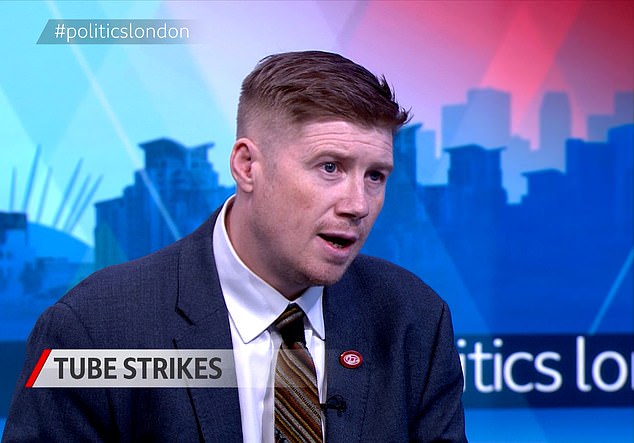
RMT general secretary Eddie Dempsey (above) said workers are ‘always prepared to strike’
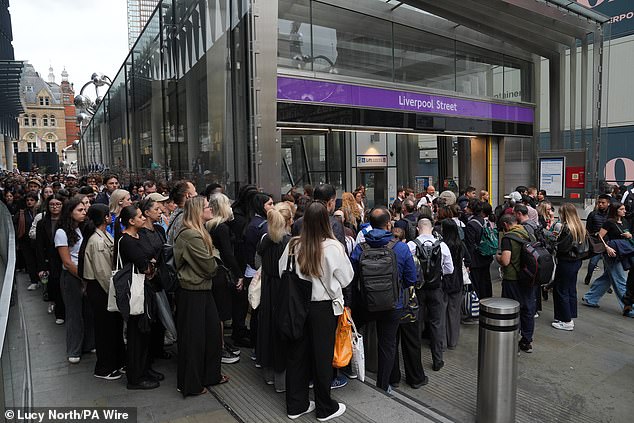
Passengers wait to enter London Liverpool Street station for Elizabeth line services this week
It comes after nearly all tube lines were shut down and tens of thousands of commuters were forced to taxi, walk or cycle around the capital between September 7 and 12.
During the first few days of the strike, bike collisions went up by a third, according to the London Ambulance Service.
Elsewhere, businesses in Canary Wharf and Westminster were hardest hit with footfall plummeting by 31 per cent in comparison to the previous week.
The travel mayhem also led to Post Malone and Coldplay rescheduling their concerts in the capital.
The industrial action is estimated to have cost the economy £230million.
When confronted with this staggering number, Mr Dempsey said: ‘Well, look, we don’t take any pleasure in causing disruption.
‘I’m a Londoner. I love the city. But at the same time, we’re unapologetic about fighting for our members.
‘We’re a democratic organisation. My members decide what they want, and then I’m supposed to go out and deliver that. It is tough on people and l get that.’
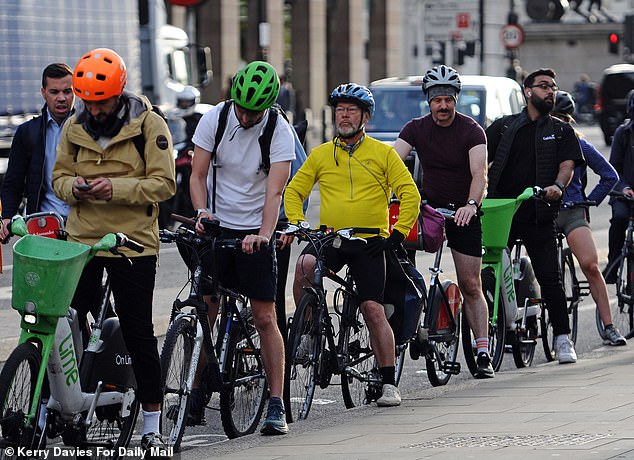
Cyclists pictured making their way to work in London this week during the Tube strike
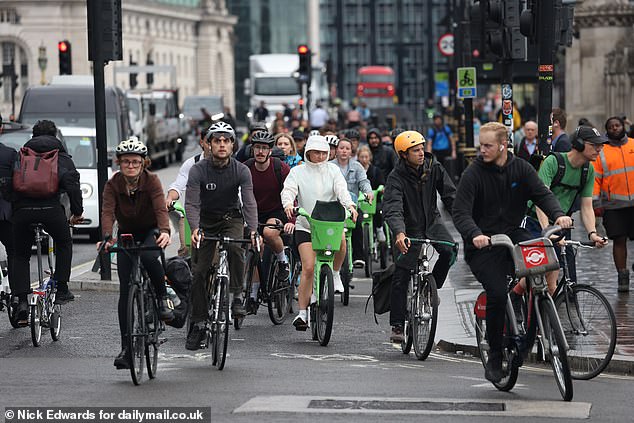
Collisions involving bicycles saw a 44 per cent spike this week after an RMT union walkout from Sunday evening to Friday morning
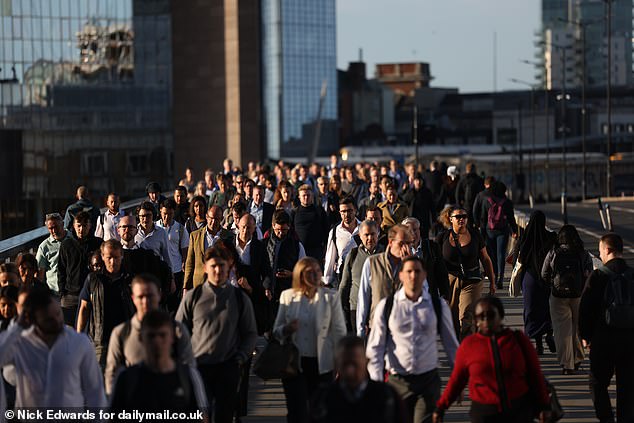
Swarms of commuters were seen walking over London Bridge amid travel chaos
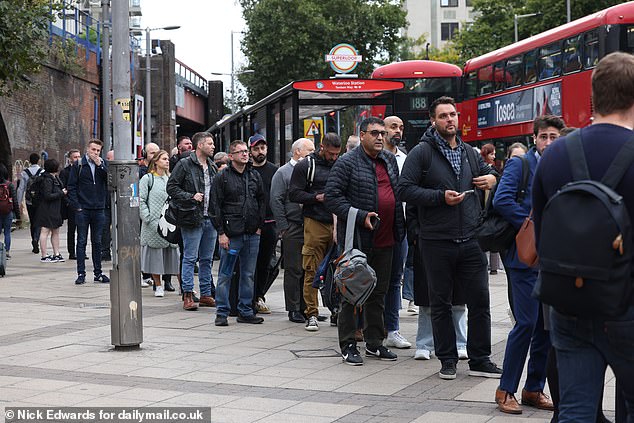
People queue for buses in Central London as the Tube strike caused travel misery
Citing an independent study by the University of Greenwich, Mr Dempsey said the shift work that tube drivers carry out has a ‘very bad impact’ on their health.
‘You can lose up to ten years on your life,’ he said. ‘It leads to cardiovascular problems, and a lot of our members now are going into ill health before they get to retirement.
‘How we can get better shifts is through reducing the working week. We work round the clock, 24/7, 364, days a year. So that’s really important to our members, and we want to make some progress in that direction.
‘We’re not asking for an immediate drop. We’re asking for a move towards us.
‘We’re prepared to negotiate reasonably. We’re prepared to compromise. As I said, we’ve been discussing this since 2018.’
As negotiations rumble on, academics have been making a renewed case for driverless trains on all lines, mirroring the Docklands Light Railway which launched without drivers in 1987.
The Conservatives have backed driverless Tubes for years but the idea has faced staunch opposition from the powerful railway unions amid safety concerns.
Boris Johnson said back in 2020 when he was prime minister that driverless trains should be a condition of any future funding for Transport for London (TfL).
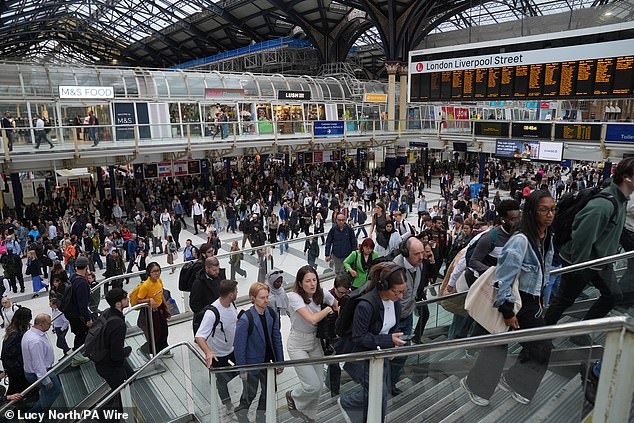
Passengers inside London Liverpool Street station as the Underground strike brought transport to a halt
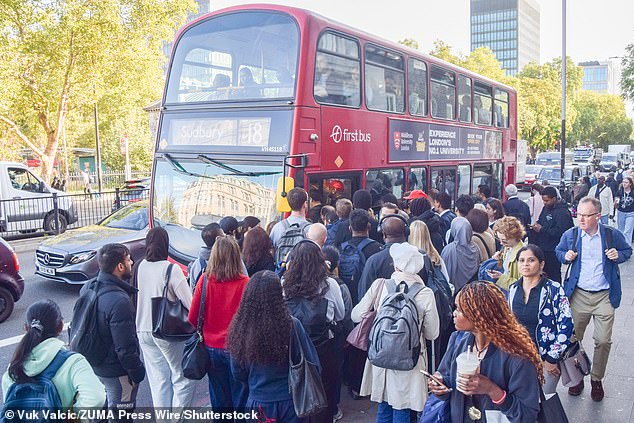
Hundreds of people were seen queuing for the one bus near Euston due to the London Underground closure
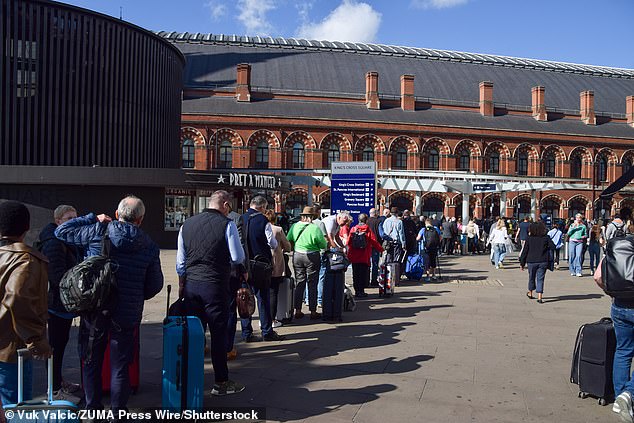
Crowds queue for taxis outside King’s Cross station following the closure of the Underground
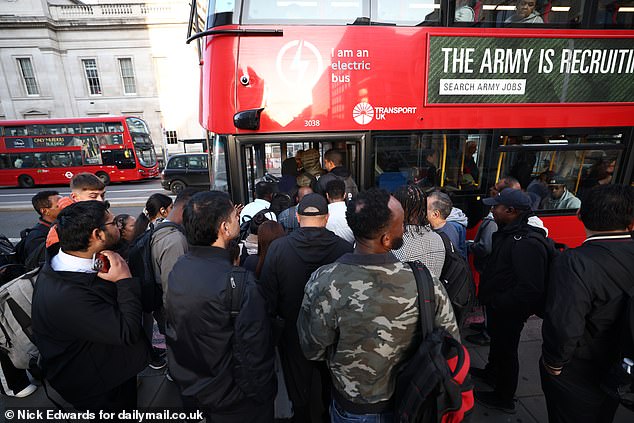
Despairing commuters packing onto buses into the city which are extremely busy with workers
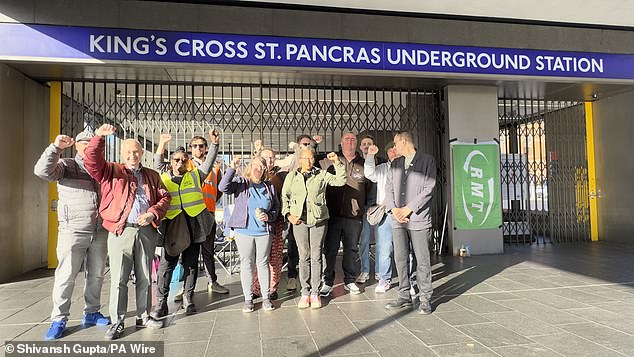
The picket line outside the closed gates at one of the entrances for the King’s Cross St Pancras Underground station
Grant Shapps also told TfL to look into the feasibility of driverless trains in 2022 after the Department for Transport bailed out TfL during the Covid-19 pandemic.
But TfL believes such a project would cost billions of pounds to implement – including £20billion on just three of the oldest lines. Mayor Sir Sadiq Khan said last December that work to introduce driverless trains would ‘not be progressed any further’.
The Centre for Economics and Business Research estimates the strike had a direct impact on the London economy of £230million and cost millions more indirectly.
Jawad Iqbal, former visiting senior fellow in the Institute of Global Affairs at the London School of Economics, told The Times: ‘This reckless industrial action can only hasten public demands for driverless trains.’
He added: ‘Automation would do wonders for economic productivity and would help bring an end to damaging disputes of this nature. No modern capital city should be held to ransom in this way.
‘The RMT, a union dinosaur unable to adapt to a changing world, has only itself to blame. Its members will unfortunately pay the price in terms of their jobs in the long run. The public won’t mourn their demise.’
The full interview with Mr Dempsey will air at 10am on BBC One in London on Sunday, September 14.











